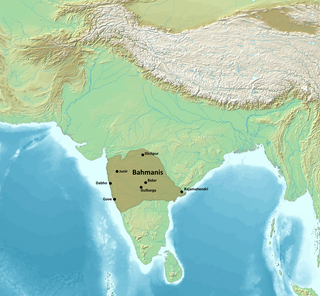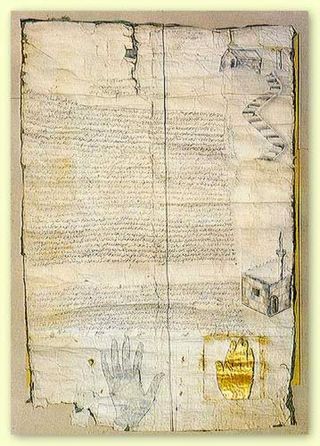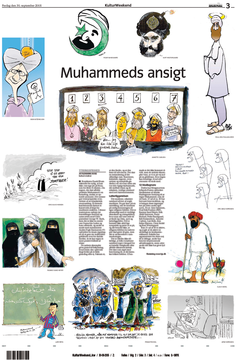
Muslims are people who adhere to Islam, a monotheistic religion belonging to the Abrahamic tradition. They consider the Quran, the foundational religious text of Islam, to be the verbatim word of the God of Abraham as it was revealed to Muhammad, the main Islamic prophet. Alongside the Quran, Muslims also believe in previous revelations, such as the Tawrat (Torah), the Zabur (Psalms), and the Injeel (Gospel). These earlier revelations are associated with Judaism and Christianity, which are regarded by Muslims as earlier versions of Islam. The majority of Muslims also follow the teachings and practices attributed to Muhammad (sunnah) as recorded in traditional accounts (hadith).

Christianity and Islam are the two largest religions in the world, with approximately 2.8 billion and 1.9 billion adherents, respectively. Both religions are Abrahamic and monotheistic, having originated in the Middle East.

The Kingdom of Saudi Arabia is an Islamic absolute monarchy in which Sunni Islam is the official state religion based on firm Sharia law. Non-Muslims must practice their religion in private and are vulnerable to discrimination and arrest. While no law requires all citizens to be Muslim, non-Muslim foreigners attempting to acquire Saudi Arabian nationality must convert to Islam. Children born to Muslim fathers are by law deemed Muslim.

Warith Deen Mohammed, also known as W. Deen Mohammed, Imam W. Deen Muhammad and Imam Warith Deen, was an African-American Muslim leader, theologian, philosopher, Muslim revivalist, and Islamic thinker.
Hassan Hanafi was a professor and chaired the philosophy department at Cairo University. He was a leading authority on modern Islam.

Tariq Ramadan is a Swiss Muslim academic, philosopher, writer, and convicted rapist. He was a professor of contemporary Islamic studies at St Antony's College, Oxford and the Faculty of Theology and Religion, University of Oxford, but in 2017 he took an agreed leave of absence due to being held in prison following two rape allegations, before retiring in 2021. He is a senior research fellow at Doshisha University in Japan, and is also a visiting professor at the Université Mundiapolis in Morocco. He was a visiting professor at the Faculty of Islamic Studies at Hamad Bin Khalifa University in Qatar, and used to be the director of the Research Centre of Islamic Legislation and Ethics (CILE), based in Doha. He is a member of the UK Foreign Office Advisory Group on Freedom of Religion or Belief. He was listed by Time magazine in 2000 as one of the seven religious innovators of the 21st century and in 2004 as one of the 100 most influential people in the world and was voted by Foreign Policy readers as one of the top 100 most influential thinkers in the world and Global Thinkers. Ramadan describes himself as a "Salafi reformist".

The Bahmani Sultanate was a late medieval kingdom that ruled the Deccan Plateau in India. The first independent Muslim kingdom of the Deccan, the Bahmani Sultanate came to power in 1347 during the rebellion of Ismail Mukh against Muhammad bin Tughlaq, the Sultan of the Tughlaq dynasty of Delhi. Ismail Mukh then abdicated in favour of Zafar Khan, who would establish the Bahmani Sultanate.
Criticism of Islam can take many forms, including academic critiques, political criticism, religious criticism, and personal opinions. Subjects of criticism include Islamic beliefs, practices, and doctrines.

Olivier Roy is a French political scientist, professor at the European University Institute in Florence, Italy. He has published articles and books on secularisation and Islam including "Global Islam", and The Failure of Political Islam. He is known to have "a different view of radical Islam" than some other experts, seeing it as peripheral, Westernized and part of a radicalized and "virtual" rather than pious and "actual" Muslim community. More recently he has written on the Charlie Hebdo shooting, and the November 2015 Paris attacks.
Cultural Muslims, also known as nominal Muslims, non-practicing Muslims or non-observing Muslims, are people who identify as Muslims but are not religious and do not practice the faith. They may be a non-observing, secular or irreligious individuals who still identify with Islam due to family backgrounds, personal experiences, ethnic and national heritage, or the social and cultural environment in which they grew up. However, this concept is not always met with acceptance in conservative Islamic communities.

The Ashtiname of Muhammad, also known as the Covenant or Testament (Testamentum) of Muhammad, is a charter or writ granting protection and other privileges to the followers of Jesus, given to the Christian monks of Saint Catherine's Monastery in the Sinai Peninsula. It is sealed with an imprint representing Muhammad's hand.

Islam is the second-largest religion in Europe after Christianity. Although the majority of Muslim communities in Western Europe formed as a result of immigration, there are centuries-old indigenous European Muslim communities in the Balkans, Caucasus, Crimea, and Volga region. The term "Muslim Europe" is used to refer to the Muslim-majority countries in the Balkans and the Caucasus and parts of countries in Eastern Europe with sizable Muslim minorities that constitute large populations of indigenous European Muslims, although the majority are secular.

The Jyllands-Posten Muhammad cartoons controversy began after the Danish newspaper Jyllands-Posten published 12 editorial cartoons on 30 September 2005, most of which depicted Muhammad, a principal figure of the religion of Islam. The newspaper announced that this was an attempt to contribute to the debate about criticism of Islam and self-censorship. Muslim groups in Denmark complained, and the issue eventually led to protests around the world, including violence and riots in some Muslim countries.
Islam and modernity is a topic of discussion in contemporary sociology of religion. The history of Islam chronicles different interpretations and approaches. Modernity is a complex and multidimensional phenomenon rather than a unified and coherent one. It has historically had different schools of thought moving in many directions.

European Islam, or Euro-Islam, is a hypothesized new branch of Islam that historically originated and developed among the European peoples of the Balkans and parts of countries in Eastern Europe with sizable Muslim minorities which constitute of large populations of European Muslims. Historically significant Muslim populations in Europe include the Ashkali and Balkan Egyptians, Gorani, Torbeshi, Pomaks, Bosniaks, Chechens, Muslim Albanians, Ingushs, Greek Muslims, Vallahades, Muslim Romani people, Balkan Turks, Turkish Cypriots, Cretan Turks, Yörüks, Volga Tatars, Crimean Tatars, Lipka Tatars, Kazakhs, Gajals, and Megleno-Romanians from Notia today living in Turkey, although the majority are secular.

Prince Ghazi bin Muhammad is a Jordanian prince and a professor of philosophy. He is the son of Prince Muhammad bin Talal of Jordan and his first wife, Princess Firyal. He is a grandson of King Talal of Jordan and thus a first cousin of King Abdullah II and sixteenth in the line of succession to the Jordanian throne. He is well known for his religious initiatives, about which a book was published in 2013.

Abdelwahab Meddeb was a French-language writer and cultural critic, and a professor of comparative literature at the University of Paris X-Nanterre.

Taha Abderrahmane, is a Moroccan philosopher, and one of the leading philosophers and thinkers in the Arab and Islamic worlds. His work centers on logic, philosophy of language and philosophy of morality and contractarian ethics. He believes in multiple modernities and seeks to establish an ethical and humanitarian modernity based on the values and principles of Islam and the Arab tradition.
Non-denominational Muslims are Muslims who do not belong to, do not self-identify with, or cannot be readily classified under one of the identifiable Islamic schools and branches. Such Muslims do not think of themselves as belonging to a denomination but rather as "just Muslims" or "non-denominational Muslims." Muslims who do not adhere to a sect are also known as non-sectarian Muslims.














